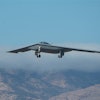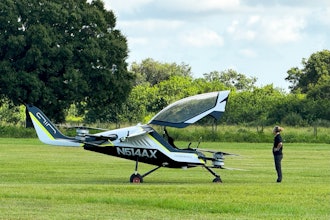KANDAHAR, Afghanistan (AP) — Since the war began, this southern city and surrounding countryside have been marked as the heartland of the Taliban, the insurgents' springboard to retake all of Afghanistan. It has witnessed some of the bloodiest fighting.
Now, as U.S. and allied forces wrestle with urban warlords and take on die-hard insurgents in booby-trapped orchards and grape fields, the battle for Kandahar is being described as the decisive campaign, a linchpin of American strategy to win the 9-year-old conflict.
"As goes Kandahar, so goes Afghanistan," has almost become the military's mantra.
Not all agree, arguing even if success in Kandahar is achieved, the war will be far from over. That success is far from guaranteed: the obstacles are overwhelming, the time to overcome them may prove too short, and victory may hinge not on what happens on the ground in Kandahar, but in the American political arena.
"This is Western military thinking which is totally irrelevant to Afghanistan," says Marc Sageman, a former CIA operative in the region now with the Washington-based Foreign Policy Research Institute. "You can pacify Kandahar and you'll still lose the war because Afghanistan remains a highly decentralized society, and in the countryside, the Kabul government has little legitimacy."
Southern Kandahar is unquestionably important. The city itself, the country's second largest with some 500,000 inhabitants, served as the capital of the Taliban during its years in power. Al-Qaida leader Osama bin Laden used it as his base during the 9/11 attacks. Now, the insurgency draws its greatest strength from the province and the neighboring region, dominated by the Pashtun ethnic majority who form the Taliban core.
"If you win in Kandahar it will have a major effect throughout the south. If Kandahar flourishes, other things will flourish. This is an iconic place for the Pashtun psyche," the British commander of NATO forces in the south, Maj. Gen. Nick Carter, told reporters recently. In other words, the domino theory, Afghan-style.
Others argue the focus on Kandahar is diverting troops and resources from other areas of the country where the insurgents are making significant gains, that the war, according to some on-the-ground U.S. officers, must be fought village by village, valley by valley.
Adm. Mike Mullen, chairman of the U.S. Joint Chiefs of Staff, has estimated the insurgency has spread to about one-third of the country's districts. Shadow Taliban governors, some reports say, exist in 33 of the country's 34 provinces. And there are other strategic hotspots besides Kandahar, including the Kabul region and stretches of the border with Pakistan, where al-Qaida — Washington's prime target when the war was launched in 2001— is concentrated.
Commanders describe the operation for Kandahar — dubbed "Hamkari Baraye Kandahar," or "Cooperation for Kandahar" — as not a conventional offensive but rather a "slow, rising tide," where military muscle plays a secondary role. At its height, roughly 25,000 NATO and Afghan troops will be deployed in the city and surrounding countryside.
"This is not Stalingrad or Fallujah. This fight is about governance, the mobs, the mafia," Carter said. "Success will be judged how we connect a credible Afghan government to the population."
But some tough fighting is taking place, with U.S. and Afghan forces concentrated on the city's western approaches to stem the inflow of fighters, suicide bombers and funds. About 80 percent of one Taliban stronghold, the lush and heavily mined Arghandab Valley, has been secured, Carter says, and next month a major operation will be launched in adjacent Zhari, an insurgency-wracked district where the radical Islamist movement was founded in 1994.
Within the city, "sleepers" have been planted to gather information, and plans call for U.S. military police and the Afghan National Police to have blanketed Kandahar with 11 security stations by the end of September. Intelligence-led operations will target what Carter calls "a resilient insurgency."
Simultaneously, development projects are to be rolled out, including temporary measures to boost electric power, which is not expected to come on full stream until 2014.
But perhaps the toughest, and most essential, nut to crack will be the parallel, warlord government that has taken root in a vacuum left by the decimation of tribal leadership and the absence of effective Kabul governance. Among several families essentially running the city is that of Ahmed Wali Karzai, the half brother of President Hamid Karzai who has shown little inclination to remove his relative despite widespread allegations of his involvement in racketeering, drug-trafficking and assassinations of rivals. The younger Karzai denies those allegations.
"The problem in Kandahar is that the population views government institutions as predatory and illegitimate, representing the interests of key power-brokers rather than the populace," wrote the U.S.-based Institute for the Study of War last month.
An earlier survey of the province, roughly the size of Israel, showed endemic corruption, along with a lack of security and basic services. The situation "sets conditions for a disenfranchised population to respond either by not supporting the government, or worse yet, supporting the Taliban," it says.
Eighty-five percent of respondents in the survey, funded by the U.S. Army, said they regarded the Taliban as "our Afghan brothers." Most were against the "Cooperation for Kandahar" mission.
NATO commanders concede that transforming mafia-style rule with a semblance of clean, representative government along with other tasks are a massive undertaking.
Will there be enough time to do it?
"Kandahar's significance is political rather than operational. If (NATO commander Gen. David) Petraeus fails to achieve success there by next summer, President Obama will have a very difficult time making the case that his Afghan strategy is working. In that event, time will run out," says Andrew J. Bacevich, professor of international relations and history at Boston University, and a Vietnam War veteran.
And politics do not seem to be on Obama's side. A nationwide poll this month conducted by The Associated Press and GfK Roper Public Affairs and Corporate Communications showed 58 percent of Americans opposed the conflict, while only 38 percent supported Obama's expanded war effort.
"Eleven months are enough to make a dent. But (U.S.) counterinsurgency doctrine presupposes a long term commitment," says Arturo Munoz, an expert on Afghanistan at the RAND Corporation, referring to Obama's pledge to begin pulling U.S. troops out of the country in July next year. "The current doctrine constitutes a viable and effective strategy. The big question is whether the American body politic is willing to expend the resources, time and blood needed to implement it."
A study by the RAND think tank looking at 90 insurgencies since 1945 found it took an average of 14 years to defeat insurgents. The current U.S. counterinsurgency doctrine — COIN for short — was adopted just three years ago in Iraq. Focused on protecting and winning over the population, COIN is summarized as "shape, clear, hold, and build."
The doctrine has its critics.
"The U.S. is still conceptualizing a war it should be actively fighting as if the next year were somehow to be the first year of the war," writes insurgency expert Anthony H. Cordesman in a recent study for the Center for Strategic and International Studies.
The head of the U.S. Special Operations Command, Adm. Eric Olson, has said too much emphasis is being placed on protecting locals and not enough on fighting the enemy. "Counterinsurgency should involve countering the insurgents," he says.
Some of COIN's key assumptions were questioned at a March conference in England of government officials, military officers, aid agencies and academics.
Rather than winning hearts and minds, a conference summary said, aid may have the opposite effect when "many Afghans believe the main cause of insecurity to be their government, which is perceived to be massively corrupt, predatory and unjust."
With the clock ticking, COIN faces its first major test of the 9-year war in Kandahar.
___
Denis D. Gray is The Associated Press bureau chief in Bangkok, Thailand, and has reported on Asia for more than 30 years.


















